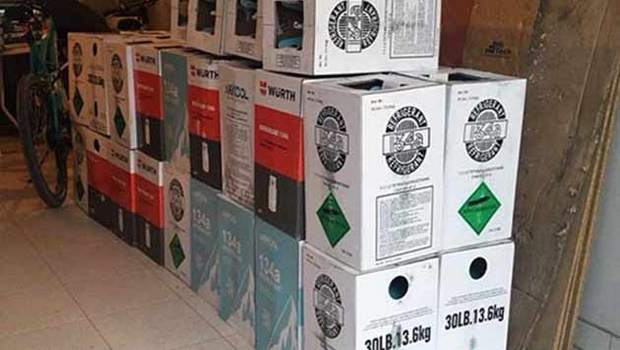EFCTC calls for incineration of illegal HFCs

The European refrigerant producers group EFCTC is recommending the destruction of seized illegal HFCs, with offenders made to meet the associated costs.
With the tide of illegal refrigerant imports showing no signs of abating, seizures are rising for material which contravenes the European F-gas regulation (517/2014), the dangerous goods transportation rules (2008/65/EC), or the EU customs code.
The EFCTC has now issued a position paper which explains the options available to the authorities for the treatment and disposal of the illegal HFCs. The paper details the number of ways in which non-compliance can occur, including imports by companies that either do not have adequate HFC quotas or in prohibited non-fillable containers.
It recommends that the products are initially placed in quarantine and then one of several options considered: destruction, auctioning it to legitimate quota holders or returning the product to the country of origin. A re-evaluation and possible harmonisation of the penalties for those caught importing HFCs illegally is also recommended.
“More and more member states are taking action at their borders to stop and confiscate illegal HFCs entering the European Union,” said EFCTC chairman Dr Nick Campbell. “We expect this effort will intensify over the next 18 months and it is vital that illegal HFCs are stopped as they can have major environmental and safety impacts.
“EFCTC believes that destruction (incineration) is the most desirable option. It provides a clear signal to the market that non-compliant product will not be tolerated and that offenders must carry the associated cost,” Campbell added.
For offending undertaking that are unable to cover the associated costs, the EFCTC recommends that the costs should be underwritten by European Commission funding.
“EFCTC would strongly recommend avoiding returning the material to the country of origin/dispatch as the risk of recidivism is very high and that auctions could be considered under specific circumstances but should be designed in a way that avoids market disruption,” Campbell stressed. “In case of non-refillable or otherwise non-compliant cylinders, an exemption clause should be considered enabling the purchaser to transfer the material into compliant cylinders.”
